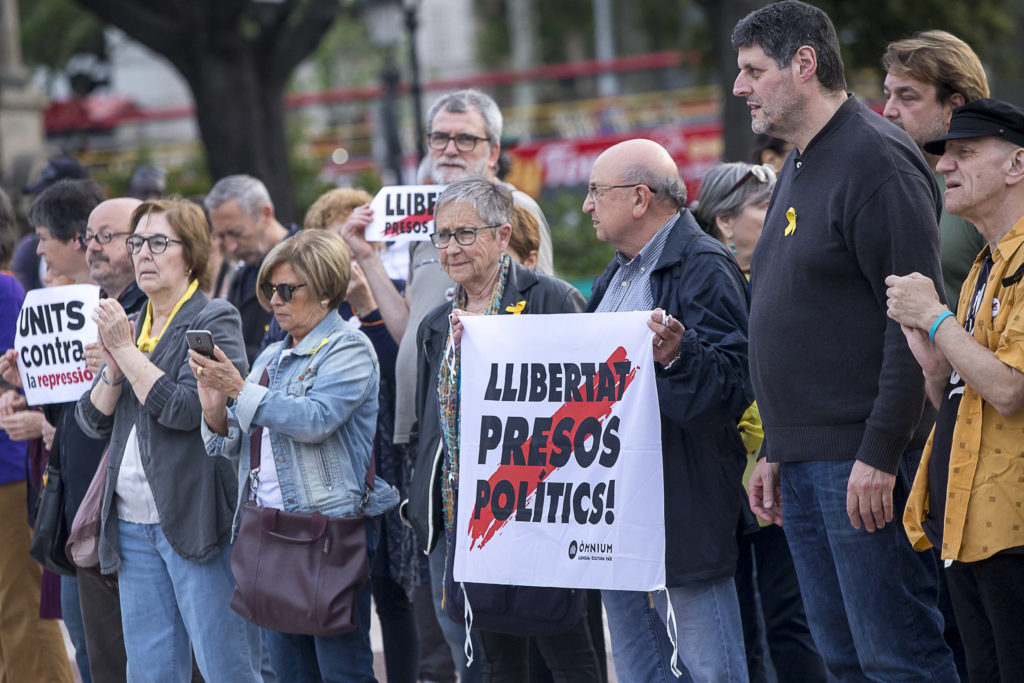19.06.2018 - 07:46
|
Actualització: 19.06.2018 - 09:46
After days of uncertainty, it is now becoming clear who is responsible for authorizing the transfer of jailed pro-independence leaders to Catalan prisons. The Spanish government, which says it favors the idea, must start the process by applying for the transfer of the prisoners. The prison service, which comes under the interior ministry, can then inform the judge overseeing the case of the application, and as long as the judge has no objections or no intention of taking further testimony from the accused, the transfer process can go ahead.
However, sources in the prison service said yesterday that there are currently no plans to move any of the prisoners. In all, nine Catalan pro-independence leaders are being held behind bars awaiting trial for their part in last year’s independence bid. They are all being held in prisons in the Madrid region, 700 kilometers from their families in Catalonia. So far, the Supreme Court judge in charge of their case, Pablo Llarena, has consistently turned down all their requests for release on the grounds that there are flight risks and they are potential reoffenders.
Catalan Foreign Affairs minister Ernest Maragall said today that the Spanish state is being extremely cynical on that subject. “What they have to do is set them free, because of dignity and justice”, he said. According to him, it is obvious “that the state jailed them and then looked for criminal figures to justify the imprisonment”. If the government of Pedro Sánchez wants to show an attitude of real dialogue, “the political prisoners shuld be here tomorrow and free the day after tomorrow”, he concluded.
Pass the buck
Pressure to move the prisoners has mounted in recent days. Yesterday, for example, Spain’s interior minister, Fernando Grande-Marlaska, opened the door to the possibility of their transfer, especially as the trial will not begin for some months. Grande-Marlaska argued that moving the prisoners would improve their “personal communications” as they would be closer to their families. While the minister admits that the process depends on his department, he stressed that any transfer would need the green light from judge Llarena.
Yet, Llarena, who yesterday once again turned down requests for release made by former government members Oriol Junqueras and Raül Romeva, as well as former Parliament speaker Carme Forcadell, responded to the minister by insisting that any decision to transfer the prisoners was not his to make, and he placed full responsibility for the move on the prison service. In fact, the service has already received applications to transfer the prisoners. In April, lawyers representing some of the prisoners applied for their transfer, arguing that they all have small children.
So far, the prison service has not responded to these applications. While the lawyers accept there is no official deadline for a response, they argue that the silence from the service can be taken as a rejection of the transfer application. Whether the Spanish government now steps in and begins the process of moving the prisoners remains to be seen. Entering into the government’s thinking will no doubt be the fact that once the prisoners have been moved to prisons in Catalonia, they will come under the jurisdiction of the Catalan government.


